Interview: Anna Rácz
Translation: Nóra Fehér
Each year, at the end of August jazz tunes pour out in Müpa Budapest for three days. This year will be no different, with the Jazz Time Festival, with an opening programme that is already a real treat for enthusiasts of the genre. The Echoes of Ellington concert will feature an international line-up that has never been taken to the stage in this form before. Their repertoire includes works by the iconic American composer Duke Ellington, with a more sophisticated but faithful orchestration that pays tribute to the work of saxophonist Frank Roberscheuten. This year’s host is the jazz trombone performer Béla Szalóky, who will be one of the featured artists at the 26 August concert. We were talking to him.

Béla Szalóky
What is so special about Duke Ellington and what made him such a huge influence on the genre?
Born in Washington, Duke Ellington quickly distinguished himself among the musicians of his day by his aristocratic dress and bearing, and later by his unparalleled leadership and organisational skills. When he came into contact with music, it meant something quite different to him than to most musicians. He turned to this music, considered primarily as dance music those days, with an analytical mind and took it very seriously. He began to explore the boundaries of the jazz genre and immediately pushed them. He was also conscious of harmonisation and structures. Even though he wasn’t the first truly conscious musician in this genre, he was certainly a pioneer. Absolutely progressive, and the effects of the developments he brought to the style are still felt today. Composers, instrumentalists and musicians still use the professional concepts that are associated with his name. The most interesting thing for me is the way he composed his music. His consciously edited and composed works could become hits. To me, that makes it quite special, as well as the fact that its unique melodies are recognisable from afar.
Can you recall when you first encountered his music?
I remember this very well, because I was introduced to Ellington’s music by a legendary Hungarian jazz double bass player, Sándor Vajda, who was a member of two different groups in the genre, the Benkó Dixieland Band and the Szabados Ensemble. He had a considerable record collection, and at the age of fifteen or sixteen, when I got acquainted with the Benkó Dixieland Band and this music, it was Vajda who introduced me to this music. He was a John Coltrane fan and showed me a record of John Coltrane playing with the Duke Ellington Quartet. It was on this record that I first heard Ellington play the piano, and I remember the way he played was like nothing I had ever heard before. I became interested in him, so I asked Sándor Vajda a lot about him and soon found out who Ellington was. This further increased my interest in him. So my fascination with and commitment to him has been going on for quite a while.
Ellington described his style as American music. How can you explain to the audience what he meant by that? Are we going to hear jazz?
Yes, absolutely, because Duke Ellington’s music consists of two very distinctive parts. In the beginning he had small orchestras, and then later, when he formed a big band, he started to think quite big and wrote full-length orchestral suites. The other, within the composed parts, are the improvisational parts, performed by a soloist with an instrument. Ellington’s interesting feature is that he composed in a very unique, personal way, writing the name or nickname of the musician playing the instrument in the score for each part. He also tried to incorporate his own musicians’ habits, talents and souls into the pieces, and from time to time gave them the opportunity to improvise within his pieces.
What brought together the international orchestras to perform at the show?
In the European jazz scene, there is a relatively small circle of people involved in older music, so-called classical jazz music. even though the performers come from several countries, practically all know each other. We co-work in different formations on a regular basis, but one special thing about this evening is that this band has never performed in this way anywhere else. When the idea of putting together an Ellington concert came up, the name of Dutch saxophonist Frank Roberscheuten, who has done the arrangements, immediately came to my mind.

Frank Roberscheuten
The repertoire of the evening will mainly include pieces from the early period of the Master’s life, and the orchestra will include English, German, Dutch and Hungarian musicians. We will not be playing the original Ellington arrangements, but slightly more elaborate versions of them; however, still in the same style.
This concert is one of the programmes of a festival lasting several days. How would you describe this series of programmes?
JazzTime is a three-day jazz festival at the Müpa Budapest, which has taken place every year since the opening of the institution, and I am fortunate enough to host it. I am very proud that this is one of the events that Müpa has been running for sixteen years. The three-day event happens on the last weekend in August, with a new name that we changed last year from New Orleans – Swing. The old name used to limit the genre a bit. We are trying to open up in terms of genre, to fit more types of music into these three days.
Is the jazz genre still very popular here?
It’s an extremely broad and diverse, but definitely layered music. Jazz musicians have never really been able to attract large crowds, and that’s not necessarily a bad thing. I think the answer to the question is yes, jazz is very popular with this particular stratum, and especially after two years of pandemic, when jazz clubs have finally opened up. At the time of the lockdowns, Müpa Budapest took advantage of all the opportunities to reach audiences that were also popular, so it was possible to save this series of programmes for the period without restrictions. Audiences were already very hungry for live music, and this is also evident in the jazz concerts of the summer festival season, which are very well attended.
Why shall we attend this concert and festival?
For sixteen years we have always tried to include the most colourful programme possible in the festival repertoire, and this year will be no exception. The first day will feature the Echoes of Ellington concert, the second day will be an outdoor concert with the Adrienne Bangó Quartet, followed by the Reggie Jonas Jr. Trio, the orchestra of Rezső Jónás. In the evening, the Kossuth Prize-winning Hot Jazz Band will give a jubilee concert in the main hall of Müpa Budapest. This will be a very special event, because it will also feature Tamás Bényei, the eleven-piece group based on the Hot Jazz Band, but with a larger line-up, and the Gramophonia Hot Jazz Orchestra, as well as the Hungarian Banjo Kings, a unique banjo band in Europe, featuring the best Hungarian banjo players. In addition, the band’s clarinettist, László Fodor, has a formation, the Leslie Fodor Swing Unit, who have recently released a record that takes a little from the Hot Jazz Band’s own music, playing the works of the popular clarinettist Benny Goodman. The name of the concert has been changed to Hacacaré, and here it is indeed expected. And on the third day, Sunday, the charming Orsi Kozma, who always comes up with something unique, has put together an evening of music based on the life of Barbra Streisand. So there will be valuable and colourful performances which are not to be missed!
Interview: Anna Rácz
Translation: Nóra Fehér

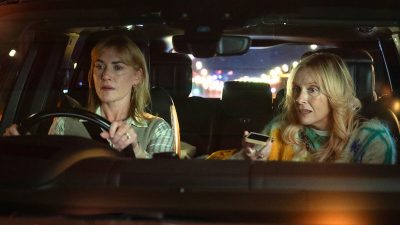
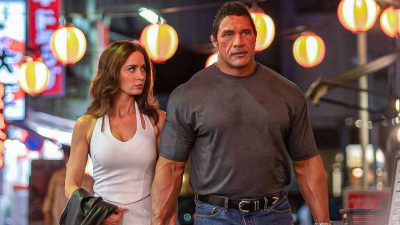
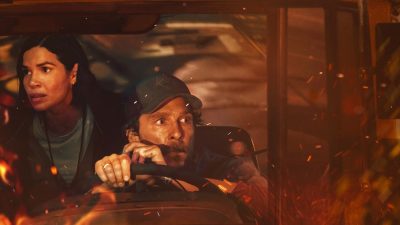


















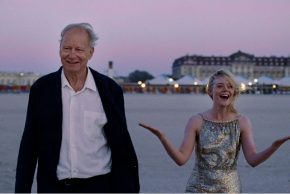
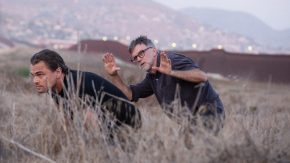
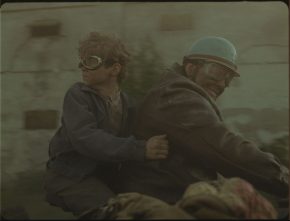
Comments